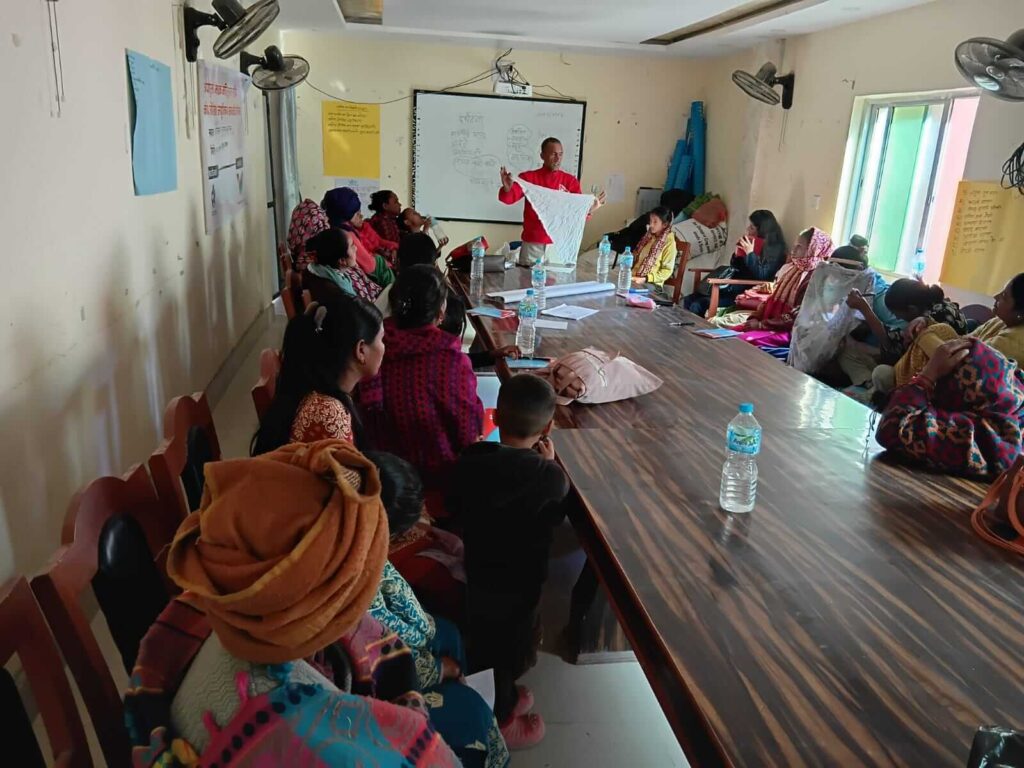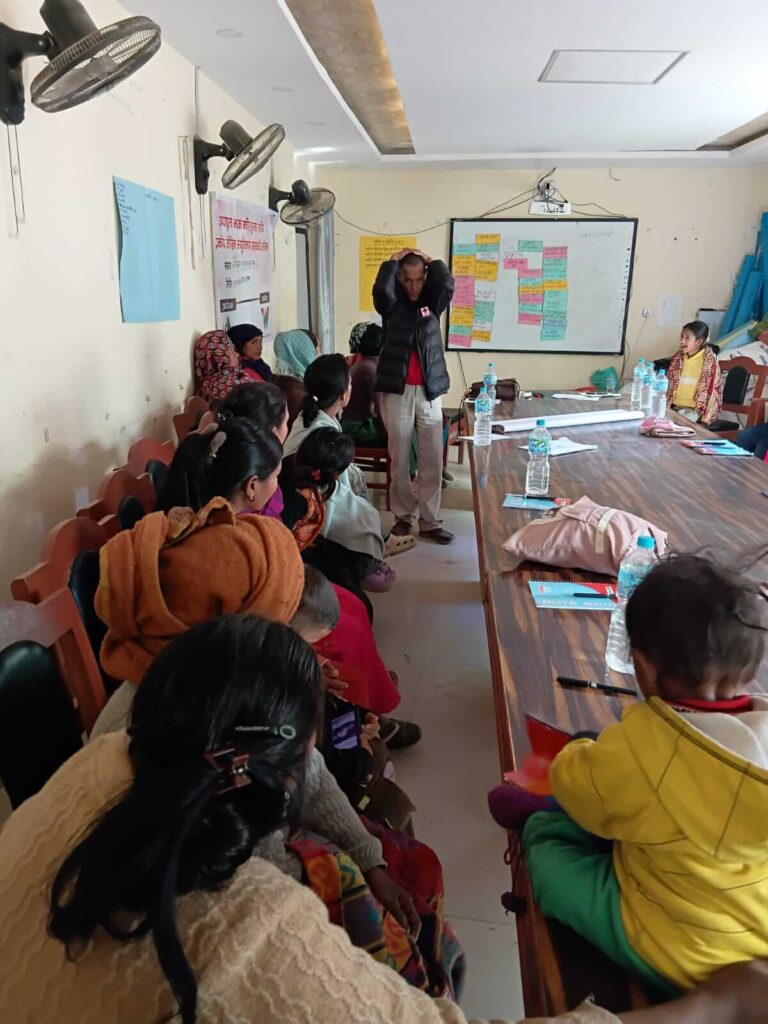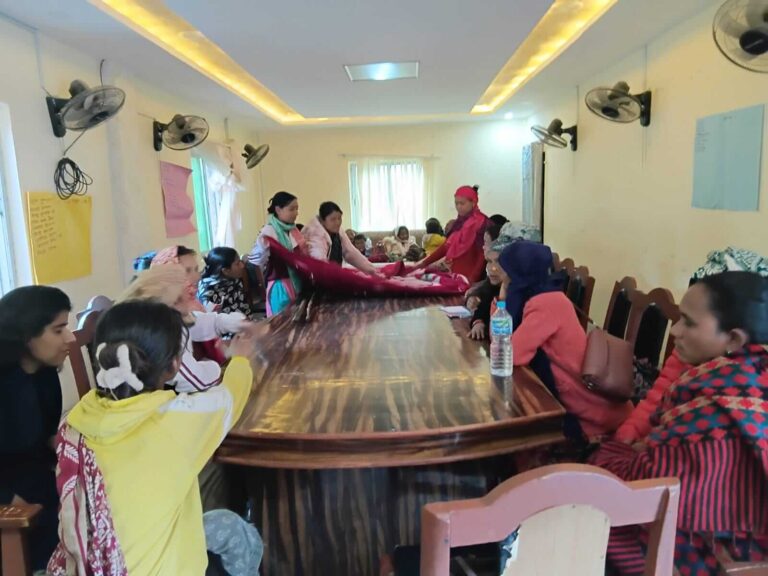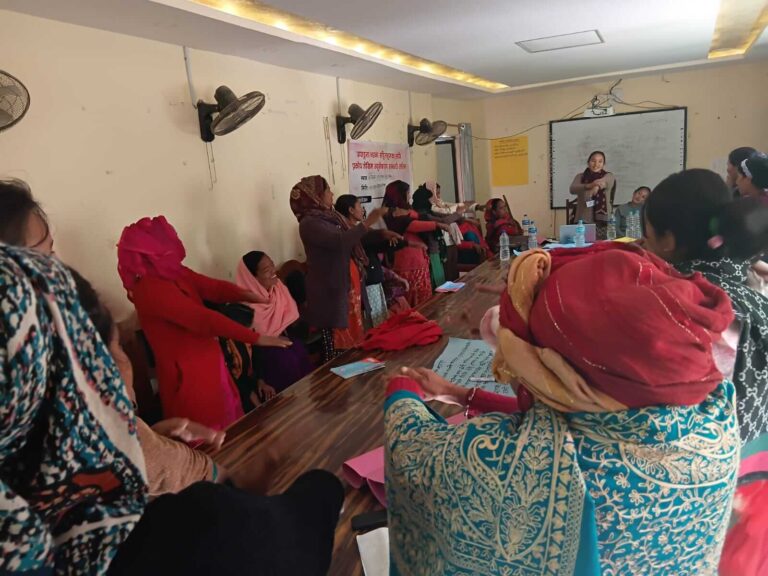16 to 17 February 2025
Access Planet Organization, in partnership with Women's Fund Asia, conducted a two-day Resilience Training for Women with Disabilities in Athabiskot Municipality, West Rukum on February 16 to 17, 2025. The training aimed to enhance the disaster preparedness and resilience of women with disabilities by equipping them with knowledge, skills, and strategies to mitigate disaster risks and respond effectively during emergencies.
Objectives of the Training:
- To raise awareness about disaster risk reduction and preparedness among women with disabilities.
- To equip participants with basic emergency response skills.
- To raise awareness of inclusive disaster management strategies that accommodate the needs of people with disabilities.
- To provide counseling to women with disabilities affected by the earthquake.
The first day of the training was facilitated by Shibharam Khari, former District president of West Rukum of Redcross Branch or the central member of Redcross and the second day of the training was facilitated by Samjhana Budha and Bishnu Sahi, the psychosocial counselors of Athbiskot Nagar Hospital. The first day focused on understanding disaster risk, preparedness, and emergency response strategies. Participants learned practical skills including assembling emergency "Go Bags," first-aid techniques, evacuation drills, and identifying safe zones during earthquakes. Interactive discussions emphasized inclusive policies and mental health considerations in disaster response.
The second day focused on managing the psychological impacts of disasters. Activities included group discussions, stress-relief exercises (e.g., deep breathing, tapping, butterfly hugs), and an engaging session on Gender-Based Violence (GBV) during emergencies. The training created a safe and empowering space for sharing and learning. Gargi Nepal, President of Access Planet, opened the training and guided reflections. The sessions equipped participants with essential knowledge and tools to respond to disasters effectively, while also addressing mental well-being and community support mechanisms.
Outcomes:
- Participants 24 women with disabilities and 4 family members learned about different types of disasters and the heightened risks faced by women with disabilities.
- Practical sessions improved participants' ability to assess risks and respond effectively during disasters.
- Group exercises and Physical exercises, helped participants process trauma from the earthquake, manage anxiety, and promote mental well-being.
- The participants actively engaged in discussions and activities, learning the importance of psychosocial support during disasters. Their willingness to share their emotions and coping strategies demonstrated a significant step towards healing.




